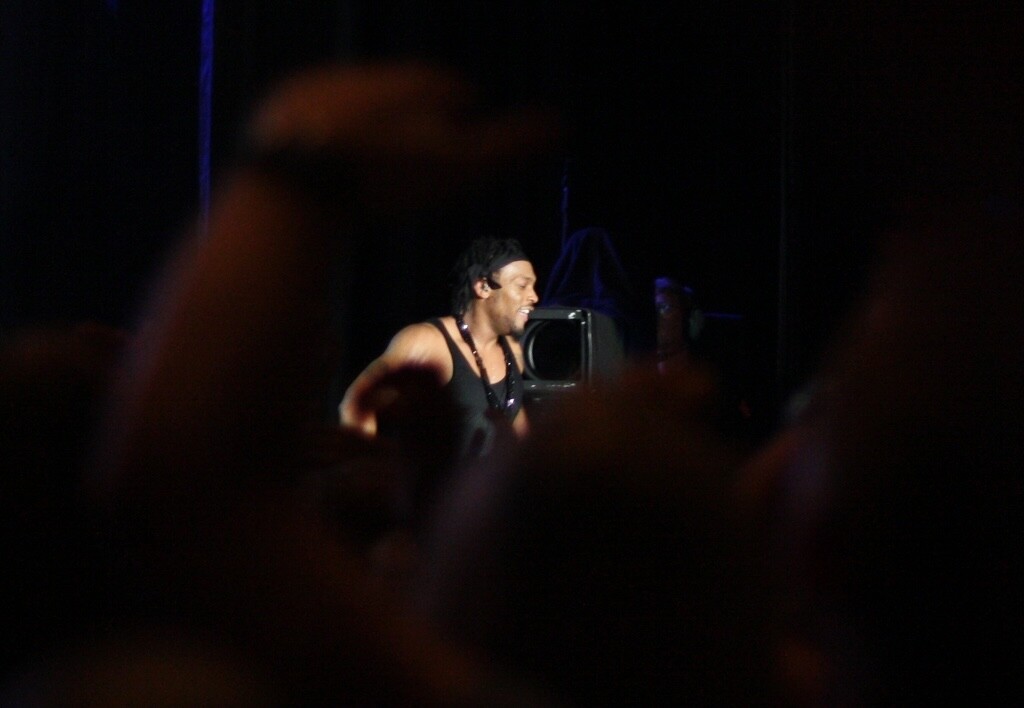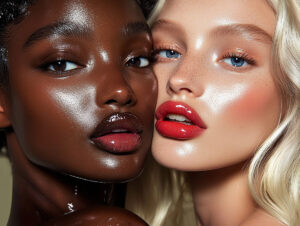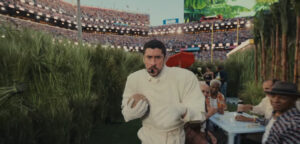D’Angelo’s recent death has left fans and artists shocked, saddened and reflective about the past while pondering what the future could have been.
Ahmir “Questlove” Thompson confirmed his struggle with accepting the harsh reality that his longtime friend was gone when he spoke publicly for the first time on Oct. 30 — two weeks after the artist’s death.
The writer/filmmaker and drummer for the hip-hop band the Roots shared his thoughts in a two-part post on Instagram and in a Rolling Stone tribute titled “The Burial of Black Genius (aka D’Angelo Lives!)”:
“Truthfully, I wasn’t ready for that gut punch. I’d been bracing for it for some 25 years since the deluge of ‘Voodoo’ in 2000. I always had a looming feeling concerning D, like, any moment now I would get the call.”
That call came when Michael Eugene Archer, known to millions by the moniker D’Angelo, died on Oct. 14 after a long and private battle with pancreatic cancer.
With respect to D’Angelo’s artistry and musical legacy, Questlove stated: “Most of our mavericks who fly that close to the sun, never get to see the journey through. D’Angelo, to me, was one of the last pure artists in Black music.”
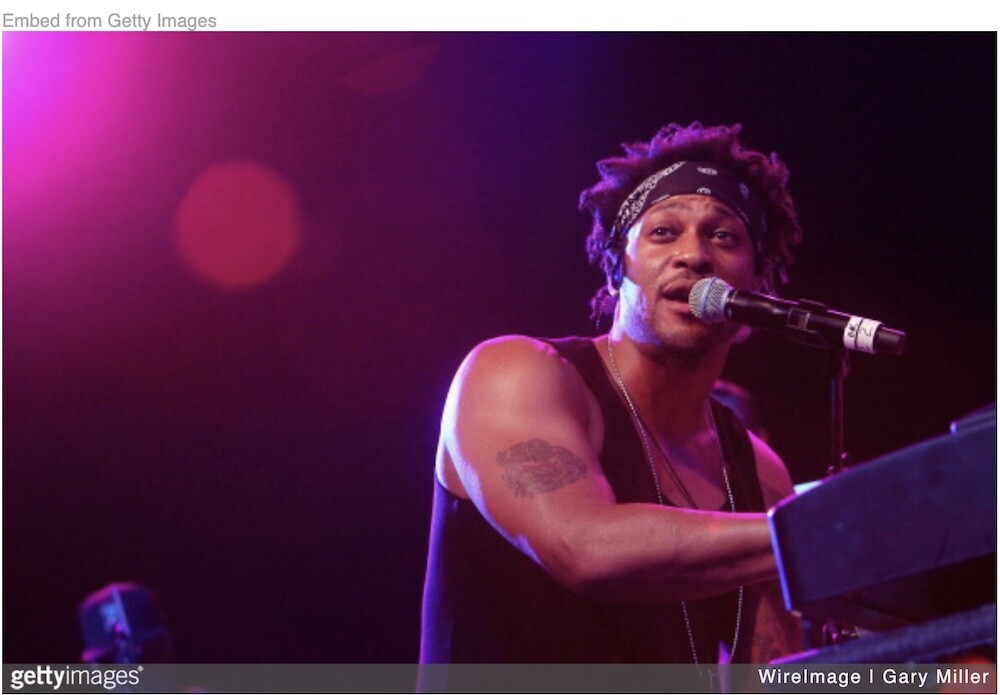
D’Angelo was born on the south side of Richmond, Virginia, on Feb. 11, 1974, to Marian and Luther Archer Sr. Both his father and grandfather were Pentecostal preachers, so he grew up entrenched in religion and gospel music.
As early as 3 years old, he exhibited enormous musical talent, embracing instruments such as the piano and learning to play by ear, at an age when most toddlers were heavily debating whether to eat crayons or paint the walls with them.
Two years later, at the age of 5, he began playing at the Refuge Assembly of Yahweh Church outside of Richmond, in his father’s choir and did so until he was 12 years old. Over the course of those years, the child prodigy honed his skills, becoming the main musician for the church.
He acquired a publishing deal in 1991 at the age of 17, and two years later was signed to EMI Music as a recording artist. His first major break came when he and his older brother, Luther, co-wrote and co-produced “U Will Know,” which was featured in the 1994 film “Jayson’s Lyric.” The song was performed by Black Men United, which included R. Kelly, Boyz II Men, Usher and Raphael Saadiq, the latter of which was an up-and-coming virtuoso in his own right at the time and would ultimately become one of D’Angelo’s main collaborators over the course of decades.
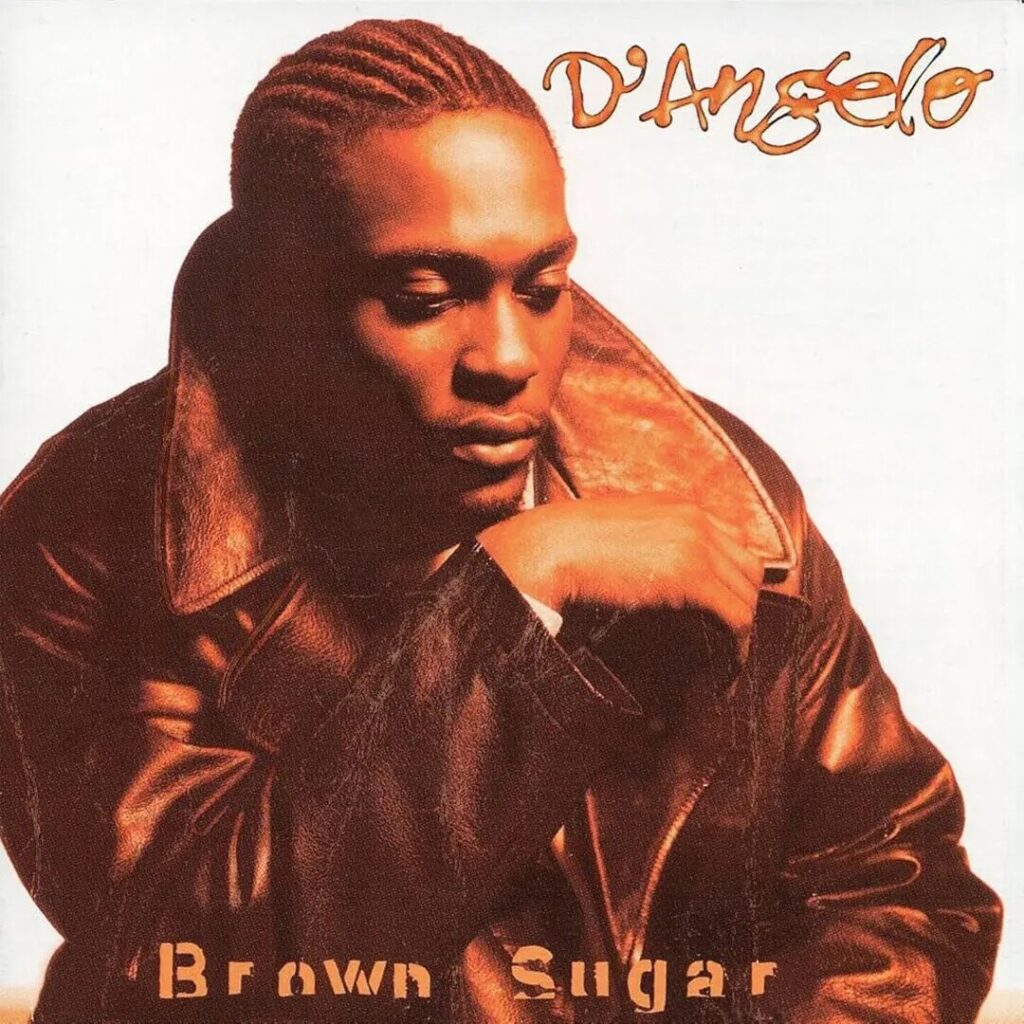
D’Angelo’s debut album, “Brown Sugar,” was released on July 3, 1995. It spawned the hits “Lady,” “Cruisin,” “Higher” and the title track, “Brown Sugar,” spending 65 weeks on the Billboard 200 charts. The album introduced the world to a brand-new artist and genre described by the neologism “neo-soul.”
While the airwaves were dominated by artists such as Jodeci and Mary J. Blige as they effortlessly banged out hip-hop and R&B hits, D’Angelo represented something similar, yet very different. He not only incorporated hip-hop and R&B on the album, but he also sang with a raw soulfulness comparable to Black music artists from the ’60s and ’70s.
“Brown Sugar” catapulted him into the stratosphere to stardom and celebrity as the album was certified platinum within seven months. In the spring of 1995, months before the album’s release, author and cultural critic Michael Gonzales sat down to interview the budding young soul superstar in a New York City restaurant to discuss his life and music.
“I glanced at the future of soul and wondered aloud how he might deal with fame if ‘Brown Sugar’ became a smash,” Gonzales wrote in his article for YSB Magazine. “D’Angelo seemed to think there was no way he would possibly be R&B’s next great superstar.”
Ironically, the album did become a smash. The newfound success ultimately led to his discomfort with celebrity, resulting in a battle between the performance aspect of fame and his innate desire to create. The battle caused an ache that would haunt him for decades.
Speaking with Gonzales today, he talks about D’Angelo’s aversion to being in the limelight. “Fame is a weird thing,” he said. “A lot of people want to be famous. But when they become famous, they’re like, ‘oh shit!’”
Described by the Washington Post as the “godfather of neo-soul,” D’Angelo never fully accepted the term. “I never claimed I do neo-soul,” he said in 2014. “I do Black music.”
And that music was a nod to the old school soul of Al Green and Marvin Gaye, funk stylings of George Clinton and Sly Stone, rock artistry of Jimi Hendrix and genre-defying originality of Prince, arguably his most prolific influence.
Although he wasn’t completely accepting of the genre categorization, he was still viewed as the originator. He would go on to assist in the assembly — along with Questlove and producer/rapper J. Dilla — of a legendary collective of Black artists who would often collaborate on each other’s projects. The collective typically held recording sessions at the Jimi Hendrix-commissioned Electric Lady Studios in New York.
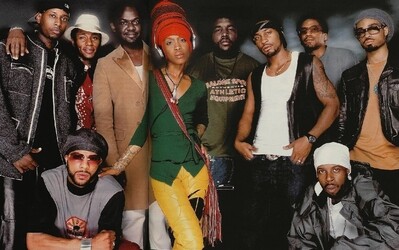
The name of this collective was the Soulquarians, and much of their music is what is commonly referred to today as, you guessed it, neo-soul. Stylistically, other descriptors of their music include alternative hip-hop, progressive soul, conscious rap and avant-garde. Members of the Soulquarians included Erykah Badu, Bilal, Mos Def and Common all at the earliest stages of their careers.
Upon being signed to EMI, D’Angelo met the late Angie Stone, who was already an established artist with her own major success. Stone, a three-time Grammy nominee, started out as a member of the first female rap group, The Sequence. In the early 1990s she became a member of the R&B group Vertical Hold before launching a solo career.
So, when she began working with and mentoring D’Angelo through the completion of “Brown Sugar,” she brought a wealth of experience and hit-making ability as a writer and producer.
“Jocelyn Cooper and Gary Harris saw his talent but, in their mind, he wasn’t consistent,” Stone said during an interview with VladTV in 2023. “They hooked us up to write and for me to help develop his craft. They were trying to finish the ‘Brown Sugar’ album and couldn’t get him to finish. But I was a no-nonsense producer, and we were able to finish by Christmas Day.”
Stone contributed to several of D’Angelo’s projects by writing, producing and singing background vocals. However, she asserted that she never received full credit for that work or acknowledgement of her musical impact on those projects, which ultimately led to resentment and tension between the two soul legends.
Their friendship and working relationship would ultimately culminate in a five-year romance and the birth of their son, Michael Archer Jr., in 1998. Shortly thereafter, their romantic relationship ended with rampant speculation as to the reasons why.
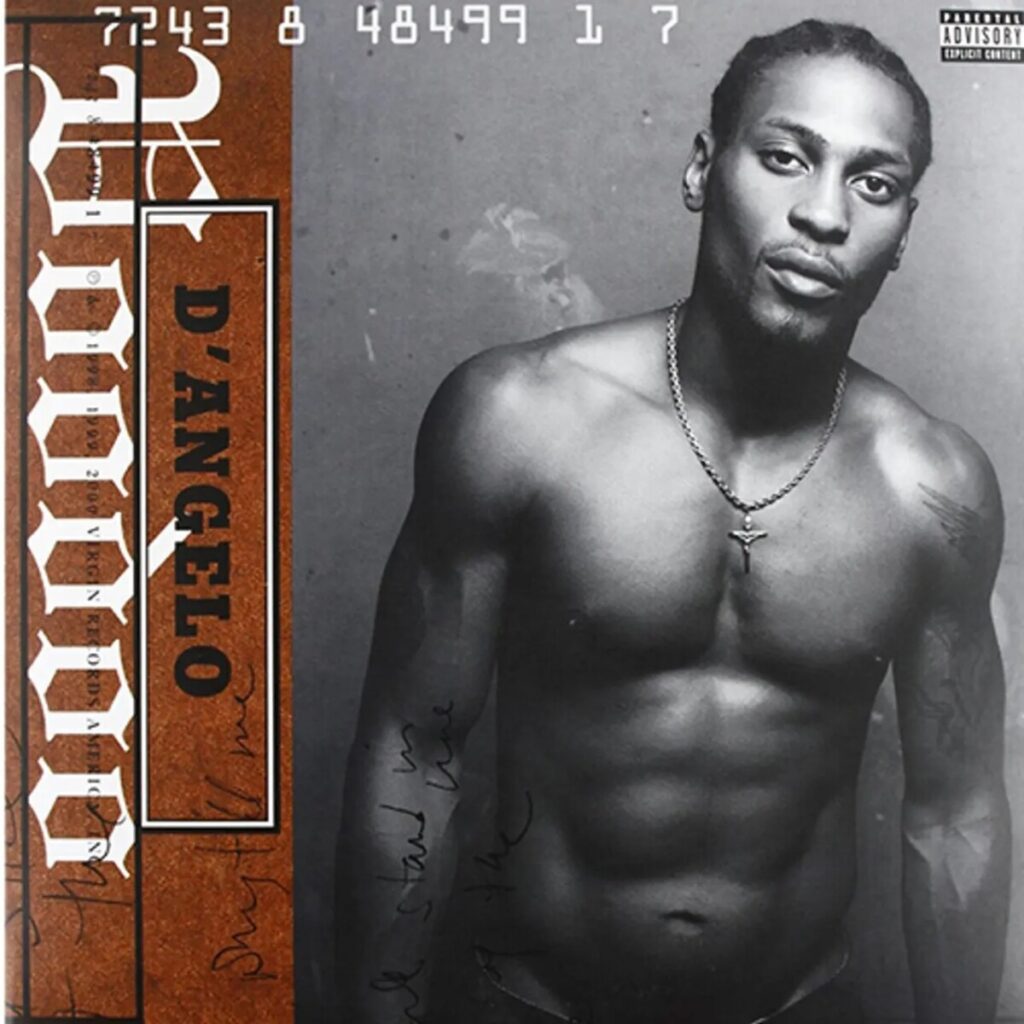
D’Angelo released his sophomore album, “Voodoo,” in January 2000. His uneasiness with stardom heightened once the single “Untitled: How Does It Feel” hit the airwaves and video channels. While the album was well-received, D’Angelo developed frustrations about his sexualized public image resulting from the album’s marketing.
“It’s well documented that circa 2000 and the release of the ‘Untitled’ video, he felt as though audiences weren’t paying enough attention to his musicianship and to the musicianship displayed,” explains Miles Marshall Lewis, a writer, author and pop critic who interviewed D’Angelo at a studio session in late 1995 when he and Erykah Badu were recording their duet, “Your Precious Love.”
“Voodoo” was a seminal moment in D’Angelo’s career, as it became a critical and commercial success, debuting at No. 1 on the Billboard 200 charts, selling almost 2 million copies and landing him his first two Grammys.
Questlove spent several years collaborating with D’Angelo on the album as they formed an everlasting bond as friends and collaborators. In support of the platinum-selling “Voodoo,” they embarked on a world tour, and he recalled how impactful the experience.
“It was probably the greatest soul review since prime Prince,” Questlove said in the second part of his Instagram post. “Anyone who’s seen it, their lives were changed. We spent four years studying Prince, so naturally we wrote our love letter back.”
During the time after “Voodoo,” D’Angelo was an elusive figure who became even more reclusive as the years went on, resulting in a long hiatus from music. He struggled with drug addiction, alcoholism, depression, legal problems and a growing discomfort with his sex symbol status.
Too often, genius begets internal conflict. This was also a period when it appears that the insecurities of making good music and living up to the hype surrounding his genius may have crept in. It was reported that it became difficult for him to be satisfied with the creative process as he wanted to achieve a level of perfection that may not have been realistic.
“Perfectionism can be a double-edged sword,” Lewis said.
However, in 2014, D’Angelo released his third and final studio album, “Black Messiah,” 14 years after “Voodoo.” It was dubbed a masterpiece and viewed as a triumphant return, with the album debuting at No. 5 on the Billboard 200 and No. 1 on the R&B/Hip-Hop charts. D’Angelo won two more Grammys, including one for Best R&B song for the track “Really Love.”
The album was a unique fusion of soul, R&B, funk and rock with lyrics that communicated a consciousness anchored by social and political relevance in direct response to the Oscar Grant, Michael Brown and Eric Garner police killings. This marked a turning point for the artist in that he started to become more vocal in utilizing his music to speak on the injustices permeating the Black community.
During a 2015 discussion with Black Panther co-founder Bobby Seale in Oakland in the New York Times, D’Angelo expressed his frustrations with artists not being as involved or outspoken as artists were in the previous generation.
“The music back then in that day, it fed the movement, and we as artists, we got a responsibility,” D’Angelo said. “These kids, they paying attention. … They looking at us.”
Speaking with Gonzales today, 30 years after his D’Angelo interview, he philosophized about the singer’s impact on music.
“I think what D. did is make music that is just timeless,” Gonzales said. ‘It stands up. ‘Brown Sugar’ changed the world of soul music.”
D’Angelo continued to release music as recently as 2024, including a collaboration with Jay-Z for the “Book of Clarence” soundtrack. He was also slated to headline the Roots Picnic in May 2025 in celebration of the 25th anniversary of “Voodoo.” However, the appearance was cancelled, because of his failing health.
According to Billboard, D’Angelo was again working with Raphael Saadiq on a fourth studio album. Perhaps fans will be lucky enough to experience the fruits of those labors through posthumous releases. But if not, the brilliance of his past work exists to keep music lovers company and continually remind us of his legendary artistry. The reality is that he owes us nothing more after decades of giving so much of himself song after song, album after album, performance after performance.
After a loss as significant as D’Angelo, people often wonder how much more of their genius fans would have been blessed with if the artist had not passed away so prematurely. Lewis offered a sobering analysis on the reality of that loss for music fans.
“You get saddened to think about the art that we will never hear or receive. and the shows that we will never get to see, and even the evolution of his artistry or what protégés he might have introduced,” Lewis said. “It’s a great loss to music.”
Although there won’t be an opportunity to witness his introduction to hand-picked protégés the way that Prince did so many times over the years, D’Angelo still managed to shape a legacy of that includes several of today’s biggest artists. The industry is chock full of artists influenced by D’Angelo’s musicianship such as neo-soul contemporaries Erykah Badu, Lauryn Hill, Bilal and Anthony Hamilton.
“What D. did is make music that is just timeless. It stands up. ‘Brown Sugar’ changed the world of soul music.”
Michael Gonzales, author and cultural critic
Rapper/singer Tyler, the Creator, took to Instagram to share how he spent his birthday money at 9 years old on the “Voodoo” album. In his post, he shared sentiments on D’Angelo’s impact.
“I am so lucky to have gotten my copy of ‘Voodoo’ when I did,” Tyler, the Creator, wrote. “My musical DNA was shaped by this man.”
Another hugely popular artist influenced by D’Angelo is H.E.R. She also took to Instagram to share a video of her guitar-strumming performance, alongside his piano playing, of “Nothing Even Matters,” the duet he recorded with Lauryn Hill for her 1998 masterpiece studio album, “The Miseducation of Lauryn Hill.”
“I’m grateful for the conversations me and D. had,” H.E.R. wrote. “Magic isn’t the word. Inspiration isn’t the word. He was spiritual. IS The soundtrack to my most important memories. What a gift of a person.”
The gospel-tinged single “Higher” from the “Brown Sugar” album sonically reminds listeners who Michael Eugene Archer genuinely was and where he came from. He was a preacher’s kid from the depths of the Pentecostal church, clear and simple.
On “Higher,” D’Angelo effortlessly floats over the chords, playing multiple instruments, while harmonizing the background vocals alongside a one-man choir of his voice singing, “Please give us strength Lord to fight our battles, and we can walk on streets of gold.”
Now that his battles have concluded, he may assuredly walk on those streets of gold that he sang about, with an unpretentious conviction like only he could. The Black Messiah was truly one of one.
Donna Jacob, a student at Howard University, originally wrote this article for 101Magazine.net, a partner of HUNewsService.com.


